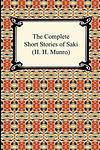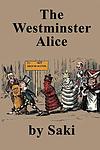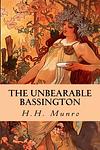Saki
Saki, the pen name of Hector Hugh Munro, was a British writer known for his witty, mischievous and sometimes macabre stories that satirized Edwardian society and culture. He is considered a master of the short story and is often compared to O. Henry and Dorothy Parker. Born on December 18, 1870, in Akyab, Burma, Saki's work includes a series of satirical tales and fables such as 'The Chronicles of Clovis' and 'Beasts and Super-Beasts'. He died on November 14, 1916, in Beaumont-Hamel, France, during World War I.
Books
This list of books are ONLY the books that have been ranked on the lists that are aggregated on this site. This is not a comprehensive list of all books by this author.
-
1. Collected Short Stories of Saki
"Collected Short Stories of Saki" is a compilation of witty, dark, and satirical tales that explore human nature and society through the lens of the Edwardian era. The stories, often featuring animals and children who act as the voice of reason, use humor and irony to critique the aristocracy, social conventions, and the human ego. The collection is known for its unexpected twists and turns, offering a blend of comedy and cruelty that leaves readers both amused and thoughtful.
-
2. The Westminster Alice
This satirical work offers a clever political parody of Lewis Carroll's famous "Alice in Wonderland," set against the backdrop of the British political landscape of the early 20th century. Through the adventures of its protagonist, Alice, the narrative humorously critiques the policies and personalities of the time, including notable figures and events in Westminster, the heart of the UK's political realm. The author employs wit and allegory to explore themes of power, governance, and societal norms, presenting a whimsical yet incisive commentary on the absurdities of political life and the characters who inhabit it, making it a timeless reflection on the nature of politics and leadership.
-
3. The Unbearable Bassington
This novel is a satirical exploration of Edwardian society, focusing on the life of Comus Bassington, a charming but irredeemably selfish and idle young man. Set against a backdrop of London's high society, the narrative delves into Comus's frivolous and extravagant lifestyle, which leads to his eventual estrangement from his mother, who is both indulgent and exasperated by her son's antics. As Comus navigates through various social escapades, romantic entanglements, and financial ruin, the story unfolds to reveal the stark realities of class, social expectations, and the consequences of personal recklessness. The novel's sharp wit and poignant critique of societal norms culminate in a conclusion that is both tragic and reflective of the characters' inescapable fates within the rigid structures of their world.


